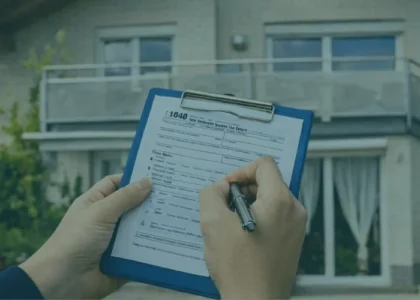By The Guillen Pujol CPAs Newsroom
Have you ever wondered––quietly, perhaps uneasily––whether you’ve overlooked something in your U.S. taxes? A form left unfiled. A foreign account unreported. A detail brushed aside, not out of evasion, but out of uncertainty. If so, you’re not alone. Across time zones and continents, many American expats live with a low hum of financial anxiety. They feel unsure if their good intentions are enough to keep them on the right side of the IRS.
The good news? The IRS knows this, too. In response, it created a way forward: a program that allows taxpayers to come clean––not under threat, but under protection. The IRS Streamlined Filing Compliance Procedures offer a penalty-free path back into good standing for those whose errors were not willful, but human. Whether you reside in Madrid, Miami or Buenos Aires, this program exists for you. Truly understanding it may be the difference between uncertainty and peace of mind.
What Exactly is the Streamlined Filing Compliance Procedures Program?
It wasn’t always this straightforward.
Back in 2009, in response to mounting concerns about undisclosed offshore assets, the IRS introduced its first Offshore Voluntary Disclosure Program. At the time, this was a complex, intimidating process that many taxpayers found too daunting to attempt. Three years later, in 2012, a more accessible alternative quietly emerged: the Streamlined Filing Compliance Procedures.
Think of it as a second chance designed for those who didn’t know they were out of step with the rules. People who never intended to hide anything, but somehow––between countries, currencies, and confusion––missed something.
The program’s focus? Non-willful neglect. Not fraud or concealment, but the quiet mistakes. This refers to unfiled Foreign Bank Account Reports (FBARs), forgotten accounts, misunderstood rules. For those who’ve stumbled into noncompliance through oversight rather than intent, the IRS offers a rare and generous chance: the ability to catch up without facing the harsh penalties that usually accompany offshore disclosure. This program is especially helpful to expats because it allows them a way to file past-due returns and required foreign financial disclosures with little to no penalties. In order to be eligible for the streamlined procedure, the taxpayer “must not be under audit or already penalized regarding the foreign accounts.”
There are two paths, depending on where you call home:
- Streamlined Foreign Offshore Procedures (SFOP): for U.S. taxpayers living abroad.
- Streamlined Domestic Offshore Procedures (SDOP): for those U.S. taxpayers living in the United States.
Each offers distinct advantages. For expats, SFOP may waive all penalties entirely. SDOP carries a 5% penalty––but even that is far less than what traditional enforcement might demand. In both cases, the streamlined process aims to simplify, not intimidate. To offer clarity instead of fear. And in some cases, the benefits stretch beyond penalty relief. You might be eligible for retroactive tax provisions––such as the Foreign Earned Income Exclusion––that could reduce what you owe.
But here’s the quiet truth: the Streamlined Program isn’t just about fixing the past. It’s about giving yourself the freedom to move forward.
The Key Benefits of Streamlined Filing Compliance Procedures
Why do so many expats and global earners consider this path?
The answer, often, is simplicity––and grace.
The Streamlined Filing Compliance Procedures offer a rare opportunity in the world of taxation: a second chance with understanding built in. For those living abroad, the Streamlined Foreign Offshore Procedures (SFOP) can erase penalties entirely. For those stateside, the Streamlined Domestic Offshore Procedures (SDOP) caps the penalty at just 5% of the highest aggregate balance of unreported foreign assets (IRS.gov––Streamlined Filing Compliance Procedures)
Compare that to traditional voluntary disclosure programs, where even unintentional mistakes can result in crushing fines, audits, or worse. Under this program, the fear of severe legal repercussions––criminal investigations and eventual imprisonment if willful conduct, for example––is largely replaced by structure, fairness, and clarity.
Furthermore, beyond the peace of mind, there’s often a financial benefit, too. Participants may receive retroactive relief through certain tax provisions, like the Foreign Earned Income Exclusion (FEIE), which may lower their taxable income, and, sometimes, the tax bill entirely.
How to Qualify for the Program
So, who qualifies?
Not everyone. But if your oversight was honest––born of confusion, not concealment––you may be closer than you think. In order to qualify for the Streamlined Filing Compliance Procedures, here’s what the IRS expects:
- Act of Non-Willfulness: Your failure to report income or file required forms must stem from negligence, inadvertence, or misunderstanding––not deliberate tax evasion.
- Three Years of Tax Returns: You’ll need to file the last three years of delinquent federal tax returns.
- Six Years of FBARs: File FBARs (Foreign Bank Account Reports) for the last six years using FinCEN Form 114.
- Payment of Taxes and Interest: Any outstanding tax liabilities, along with applicable interest, must be paid at the time of filing.
- Completion of a Certification of Non-Willfulness Statement: Submit a signed statement explaining the reason(s) for your previous non-compliance and affirming your non-willfulness.
Additionally, if you’re applying under the foreign version of the program, you’ll need to meet the non-residency test. This usually means you would’ve had to spend at least 330 full days outside the United States in one of the last three years (IRS Residency Rules). Have you already been contacted by the IRS? Are you currently under audit or examination? If so, this path isn’t available to you. Here are some alternatives that exist:
- Consider the Voluntary Disclosure Practice (VDP): If your non-compliance was willful, the Voluntary Disclosure Practice includes higher penalties, but will provide you with an avenue to compliance that reduces the risk of criminal prosecution.
- Follow the Delinquent FBAR Submission Procedures: If all income was properly reported on your U.S. returns, and only the FBAR was missed, you may be able to file without facing penalties. The Delinquent FBAR submission procedures are specifically designated for taxpayers who have not filed an FBAR in the past and have not been already contacted by the IRS about delinquent FBARs. The IRS will not impose a penalty if all income from foreign financial accounts were previously reported on your previous U.S. tax returns.
The critical step is knowing where you stand––and where you go from here.
How to Begin the Streamlined Filing Compliance Procedures Process
To quickly and effectively get back on track, partnering with a highly-skilled CPA firm like Guillen Pujol CPAs can make all the difference. At Guillen Pujol CPAs, we’ve helped hundreds of individuals and businesses untangle years of missed forms and forgotten details. Our team of advisors has deep expertise in U.S. international law, and we specialize in guiding clients through the IRS’s Streamlined Filing Compliance Procedures from start to finish.
We prepare every form with precision. We communicate with the IRS on your behalf. And we help you move from uncertainty to clarity–with the confidence that comes from knowing it’s all behind you. With deep expertise in tax regulations and offshore disclosure, Guillen Pujol CPAs helps clients accurately prepare and submit amended or late tax returns. Our personalized approach simplifies the complexities of international tax compliance, minimizing liabilities and reducing legal risks. To learn more about how our team can assist you, visit our dedicated Streamlined Filing Compliance Procedures page for more details on our services. Schedule a confidential consultation today.
About Our Firm
At Guillen Pujol CPAs, we specialize in high-income tax planning, international tax services, tax management, capital gains tax foreign property, outsourced bookkeeping and controller services, among others tax advisory solutions. Our team of experienced tax professionals has helped thousands of clients navigate complex regulations. This includes areas like Corporate Transparency Act compliance, ensuring compliance and optimal tax management strategies. As leading experts among Miami CPA firms, we are committed to providing exceptional tax consulting services tailored to your needs.
Take Action Now: Need professional tax guidance? Contact us today.
Planning Tomorrow, Together, with GPCPAs.
Trusted by Businesses Worldwide
Editor’s Note: This post is part of the ‘The GPCPAs Info Hub,’ an initiative dedicated to empowering you with the knowledge and strategies needed to navigate the complexities of the U.S. tax system and financial strategies. Visit our Information Hub, a curated resource offering the latest in tax, economic, and business news, alongside actionable guidance on tax strategies, accounting, and business advisory—because Planning Tomorrow, Together starts here.
- 2026 Tax Calendar: Your Guide to IRS Deadlines All Year
- How Realtors Can Reduce Their Taxable Income Through Smart Entity Selection and Advanced Tax Planning
- After the Shutdown: How IRS Cuts Continue Affecting Taxpayers
- IRS Tax Brackets for 2026: What Business Owners Need to Know
- Florida’s Hunting, Fishing & Camping Sales Tax Holiday 2025: A Guide for Shoppers & Businesses











